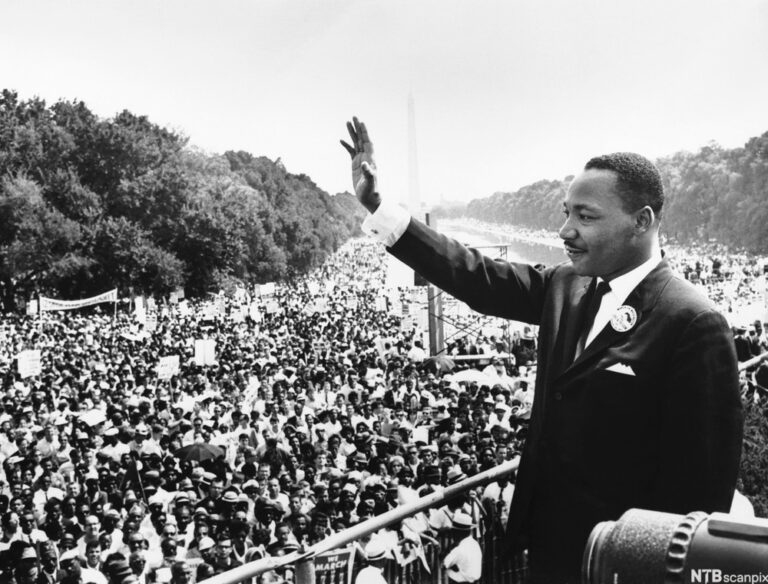
Exploring the Rhetoric of the Civil Rights Movement
Purpose
To encourage rhetorical analysis as an important method of research for undergraduate students and to encourage greater familiarity with discursive events in the United States that have congregated around the African American Freedom Struggle, particularly the events identified on two websites sponsored by the Center for Democratic Deliberation at Penn State:
The Rhetoric of the Civil Rights Movement
The contest is open to undergraduate students at any college or university.
Prizes
First Place: $1000
Second and Third Place: $250
If the winning essay emerges from an undergraduate course assignment, the course teacher will be awarded $250.
The winning essay will also be published in Young Scholars in Writing (YSW), as long as the author is willing to make any revisions requested by the YSW editorial team, with a link to the Rhetoric of the Civil Rights Movement website. (Students who enter the contest should understand that only the winning essay is considered as a submission to YSW; essays that are not selected as the winner are eligible for submission to YSW through the regular submission process.)
Prompt and Timing
Write a scholarly, informed, and informative analysis of a piece (or pieces) of civil rights rhetoric that interests you—something that has not received enough attention or that you think has been misunderstood. Articles should be 10-25 double-spaced pages in length (3,000-6,000 words) and prepared according to the current MLA style. Produce “the authoritative essay” on your topic.
Submit the essay by April 15, 2022 to civilrightsrhetoriccontest@gmail.com.
A winner will be announced by May 15, 2022 so that the author will be able to revise as necessary during the summer (under the guidance of a YSW advisory editor). The essay will be published in volume 20 of YSW.
Tips
As you consider which object(s) of analysis to pick, think about your interests, explore the Voices of Democracy and Rhetoric of the Civil Rights Movement web sites, and/or talk with your teachers.
You can submit a revised version of an essay that you worked on for a class assignment, or you can start from scratch on a topic that is new to you. (Note: Entrants are not required to consult either of the web sites, but judges are likely to favor those who do.)
Usually the best papers come from your engagement with a speech (or speeches) or document(s) or song(s) or photo(s) or film(s) or other artifact that you are especially curious (or even confused) about. If there is a specific civil rights personage that you have always wondered about—historical or contemporary—pick something produced by that person. Or pick a civil rights artifact that has intrigued you, or something that you have a personal connection to—something you have encountered in a course or on a family trip or in your home community.
Then become an expert on your topic by studying it thoroughly: use primary and secondary sources that are available on each website. Aim to explain the rhetorical event(s) so well, so completely, and so authoritatively that your essay will stand as the one that others depend on.
Example essays that may guide your own analysis are included under “Resources for Research” on the civil rights website and on the Voices of Democracy site.
As you craft your essay, keep in mind these suggestions as well:
- Be strategic in deciding which features of your topic you want to emphasize and which ones you should deemphasize; focus on the most interesting or problematical features while also being attentive to the whole.
- Be sure that your essay develops a clear thesis, defends it with a carefully organized and evidence-saturated argument, and is expressed clearly and effectively. In short, be a professional in terms of presentation. A common format is to offer an introduction describing the rhetorical challenge faced by the person whose artifact(s) you have chosen, and then to fill the body of your essay with accounts of the strategies and tactics used by the author to meet that challenge. Look at some of the papers on the web site for guidance!
- Follow MLA guidelines (i.e., double space with one-inch margins; and follow MLA advice about type size and style as well as documentation and the correct way to insert photos and quotations).
Questions?
All questions about the essay contest can be directed to Jack Selzer, Paterno Family Liberal Arts Professor Emeritus of Literature, at jls25@psu.edu.